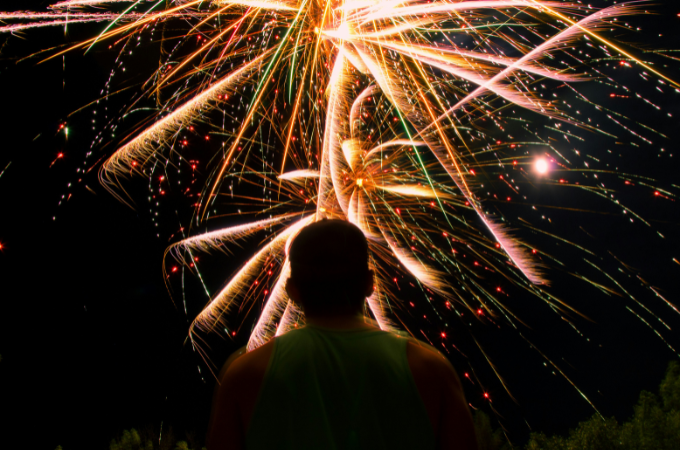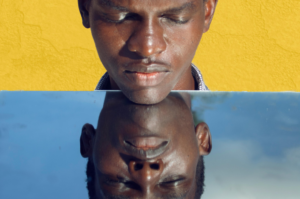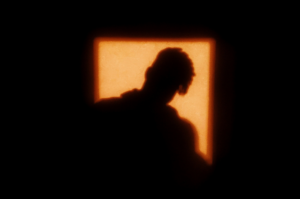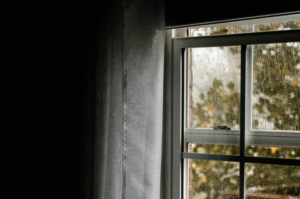
Unsheltered by your home, you step into a world of pretensions.
There’s that Edith Wharton’s novel, The Age of Innocence, where her main characters are stifled by the decorum of an American post-civil war high society. Any social setting for me is a throwback to the novel’s lingering effects; this unsheathing of decorous daggers being how we manoeuvre in this clustered status quo. I’ve avoided relatives all the same for the proceedings occurring after the pleasantries. It’s not even deliberate or in wanton but the standard script places you in a witness stand, then demands gnarled, every how are you proceeded by a semi-colon, pivoting a what are you doing these days on the other end. A question I’m not yet conversant in its articulate response. There’s an age to learn how to manoeuvre within society. Those who can’t, forever rendered outcasts.
For one more time, I’m trying to play the part.
I’m in the backseat of my father’s car as he dodges motorcades on the roads like it’s a racing game. A friend from abroad once told me in their country they’d confiscate all our drivers’ licenses. My father’s driving, reckless in some respect, gives strength to her claim. I imagine, for him seated in the wheel is a reminiscence to those years ago, before there was certainty or even doubt of my existence, for he hadn’t a clue on the woman he would end up marrying. That reminiscence, he mentioned in passing: that he used to wonder how more experienced drivers did it; glided over the pot-hole ridden Moi-age roads without getting into none, without rattling the glasses of those old public vehicles causing passengers to vibrate like they were sat on a massage chair. Now for years, he’s known.
I can’t drive yet; cars make you cruel. Anyone who’s sat next to a driver can attest to that. My earphones are shoved deep inside my ear to shut all doors to any serious conversations. I’m not playing anything on them, and yet I treat all utterances shoved my way as if to have bordered into incoherence. So, I pull out the earphones and respond with a disavowed huh. A survival tactic I picked up encumbering questions I cannot answer. The questioner in their frustration slowly disengages. This is the first time that it’s just the three of us since I was 6 years old. I’m 27 now. The same age my mother was when, as she was walking out of this apartment we’d just moved into, a neighbour who’d observed her constantly using the stairs, stopped her once and asked her whether they were climbing to their uncle’s house. A party story my mom tells time and again, to the amusement of her guests. Mine too. But once the enamourment wears off, you descend to the heart of its contemplation, the questions metastasize, incessantly rushing in and settle uncomfortably, demanding to be answered now.
There’s the one relative constantly telling you you aren’t getting any younger which doesn’t help either. Once an imposition reserved for Swahili girls concerning marriage is reframed to suite your case regarding direction, you know you’re in trouble. Then there’s others more well-meaning who pose questions like have you talked to uncle so and so again which immediately excavates a tweet I once saw: It’s been—x—years since my uncle—x—took my papers and told me he’ll do something about it. I’m still waiting. There’s a humour to misery that has attained universality. Being a descendant of a couple who had their shit figured out much earlier on, you’re rammed from all sides of surface pressure. Especially when you’re more educated than them.
We’re actually headed to Jumeirah beachfront, a party list I was added to last minute, a 60-year-old’s birthday/ family reunion/ anniversary for this doctor from the States I was yet to meet. She was Aziz’s aunt. Aziz who had married my aunt. A celebration of her life. So, there I am, white collared shirt with blue khakis, half meeting the gold and white dress code stated in the invite.
***
When I was 27, I worked in my mother’s shop. I’m still 27, but I find myself falling into this bird’s eye retrospection, always imagining that this all has passed, and life is different where I’m headed. I work a few hours in the morning and in the evening, I close the day’s accounts and close up shop. There’s a good deal of waiting when operating a corner store. It’s the manifestation of total reliance on some supreme deity to bring customers. I enjoyed it a great deal. Especially the waiting parts where I could just watch the people walk by the store-front without looking your way. Applying the same psychology one does a beggar or a hawker, where to stare is to step into an unspoken contract that the subject in question can approach you. I watched people from where I sat, their frames, how they walked, how they talked and made robust elaborate ideas of who they were from the surface details I could gather. I imagined their lives.
***
I no longer bother about New Year’s celebration. In all honesty, I never have. Not buoyed in me by some personal conviction or principle, I just never cared for it. I can usually see the fireworks outside the window in my room, but I’ve drawn my curtains and don’t even turn my head this year. I’m slouched on my pillow, having closed shop late, and I just sit there staring at the ceiling as I await sleep to ebb me away. The fireworks don’t remind me of Gaza that day like in the beginning of the conflict when my timeline was a burial ground for Palestinian babies. The fireworks actually remind me of that day at Jumeirah.
Doctor Fatuma’s birthday. I forget her last name. There were visitors, mostly from Western Kenya, where Aziz’s family was from, then the doctor’s fully Westernised kids who made it; one extremely sociable, introduced herself as an actress, and on the polar opposite, her youngest, a boy in his teens so introverted that my aunt told me he reminded her of me. I didn’t see it. He had no appetite for anything of the world, or at least appeared so. And then there was the dancing Americans, who put on a salsa show in honour of their friend and then never left the dance-floor even as we headed back home, having thanked our host. There were speeches with the usual sentimentality; of childhood memories, of Aziz’s generation who regarded her a role model since she was the first to take education seriously, the memories of the American couple in medical school, the grandkids generation who from their generic speeches, you could tell the woman was as much of a stranger to them as she was to me.
Then came the gifts, the most thoughtful being the doctor’s picture engulfed in this great white space where all of us present could write something on it. I must say the sentiment was poisoned by our poor penmanship—and—and—and, and then we were pulled out of the shade where Aziz said there was a surprise. He made a phone call and as the anticipation built, there was a blast in the sky and we all looked up; it lit up in these beautiful cacophonies of red and luminescent greens that littered my glasses. The singular gluts of light would disintegrate into showers that would burn brightly, briefly, before they faded into the blue-black sky, leaving only the unextinguished stars in these places where they don’t twinkle anymore. Fireworks are remaining embodiments of that firmament of wonder. Even those not part of us from the swimming pool, from the hotel, or reclining in their seats from the shisha lounges pulled their phones out and captured the whole affair. Fireworks unanticipated.
It was a quiet drive home. I had had a great time. Not for once needing Stanislavski’s help. The quiet birthed thoughts and the questions brewed strongly. I couldn’t sleep when I got home and I thought about the whole affair. The celebration of life! What does it enumerate before you’re dead? And what constitutes a life that deserves to be celebrated.
***
The thing about clichés is that their overwroughtness only arose as a result of their uncontestedness. We could make a simile as true as a cliché. And mischievously up my sleeve is age is just a number. I have read about people who lived lifetimes in such a short life and others who withered away, their opinions taken for infantile inscriptions despite their great ages. I’ve met dead men walking, and I’ve seen signs of people burning so bright while for centuries they’re rested under unepitaphed graves. It’s the compilation of these moments that we hope will constitute a life. A life… a life? Am I alive yet? Am I acquainted with someone who is alive?
Currently, I’m reading Mohammed Asad’s Road to Mecca, which I might argue is one of the greatest books of the twentieth century. Muhammad Asad was a diplomat, and the first citizen of Pakistan. He’s actually a Westerner who converted to Islam in the 1920s and chose to live in the orient, beginning with Saudi Arabia where we meet King AbdulAziz and a young king—then prince—Faisal. He laments on the destruction of the Bedouin life, the purity of it quickly being eroded by modernity. He travelled through the deserts as a writer and every detail of the descriptions of Bedouins, caravans, sandstorms and desert nights is one to marvel at. Mostly he worked in the capacity of a diplomat for these Muslim nations, and on international platforms where his fellow Westerners met him, they wondered why would he forsake the superiority of Western values and adopt the way of these desert-dwellers and curry-smelling oriental men. They saw in vivid detail this instigated clash of civilizations co-existing in this one man. And it gets into the whole philosophy of Western perception of Western history, composing the world into Greeks, Romans and Barbarians. How the Western identity was fully cemented with the crusades where we now banded the Saxons, the Normans, the Franks, the Sicilians, and for the first time had a collective identity and demonised the rest.
But let’s not glide thus far beyond the scope of this essay. How he came into this conflicting world view was when he was on a bus one day and observed all these downtrodden faces and noticed it was an ingrained feature in each and every one there. As if noticing it for the first time, he drew attention to it to his wife, who noticed just the same ingratiated unsatiated look. As he reached home, he saw upon the page of this book he was reading: Vying for more has deluded you, until you visit the graves… and quickly he recalled his wife and told her to read the chapter. Isn’t this what we just saw? And immediately, they decided to turn it all around and pursue this life.
Life. I notice the word changes its meaning within me whenever the subject shifts a bit. To celebrate a life? As you’re still alive? A portion of life is derived from our group identities. Ingrained within you will always be this idea of a good life as it is imprinted on you. Growing old healthy, good pay, being comfortable, raising a family, being educated, are all measures of a good life. But you do notice the mismeasures in it in the aspects of ourselves that still haven’t been covered. The metaphysics, the starving souls, how do you fill a vacuous hole, that some call purpose, that you have no inkling of its ending. The ailing from these mismeasures become taxed into our mental well-being, but I won’t get into the secular age. My detesting of it is apparent at this point.
***
There are libraries filled with compendiums of unlived lives, how to live your life, how to live in 24 hours, the focus seems to always be in the working towards. Life remains this unresolved issue until it’s finished. A problem even to some extent demanding to be filled with stuff or else its wasted.
***
I’m burying a neighbour’s nephew who died young. 29. And, maybe like all of us thought, he had so much of it left. His cousin walks into our shop and I give him my condolences. I knew him since he was a little boy, 20 years ago when my parents began to build this life. We played together until I became too introverted for anyone’s tastes. Then his younger brother married just a month back. Like many, the shop has re-acquainted us. I heard, I tell him. I’m sorry about the whole thing. Almost dismissively, he says, We were to born to die, we will all die. My mother descends the stairs she’s used 20 years now and stops at the shop. We’re the neighbours, we’re part of it, she tells me, to mean we are apportioned their grieving, and heads towards the grieving house.
Another neighbour who retired the previous month stops to buy milk, bread and eggs, I’m moving back to Eastern this week. Her little grandson didn’t stop at the shop that morning to humour me by asking for free things. And within the week, he’ll be gone as well.
It’s only the third day of the new year, and life is changing all at once, the allegiances shifting, dynamics changing, and I feel silly trying to plunge into such an uncontrollable animal. Maybe these miniscule strokes of significance, accumulated properly will amount to something worth having lived by. Until so, so it goes.
Photo by Jack Patrick on Unsplash










Ismael Premji March 01, 2024 09:23
Interesting read brother. Really enjoyed!